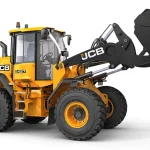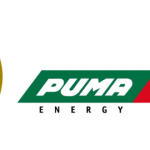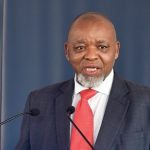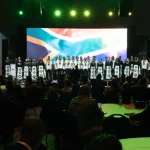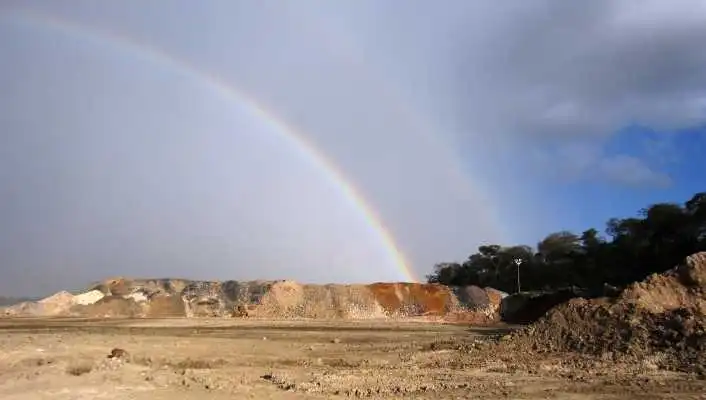The popular Junior Indaba, held in Johannesburg earlier this month, highlighted once again that South Africa is losing ground on the exploration and junior mining front – with exploration being discouraged by a range of factors.
Unlike many other jurisdictions, it appeared that South Africa did not actively promote its mineral deposit endowment – perhaps in part due to the country’s historic dominance in mineral production. The country has for over a decade attracted less than 1% of global exploration investment annually.
According to principal exploration geologist at SRK Exploration, John Paul Hunt, there were currently few projects in the pipeline to replace the country’s ageing mines – many of which were approaching the end of mine-life. Hunt explained that exploration in the country was historically conducted by large, well-resourced mining houses – but that this role was now left to junior companies.
“Unfortunately, a common theme at the Junior Indaba is how ill-equipped South Africa is to support and nurture the smaller exploration and mining companies,” he said. “This year’s event indicated that the country has made little concrete progress in improving conditions for exploration companies in particular.”
Part of the challenge was related to the raising of capital through the local bourse. He noted that the number of mining companies and explorers on the Johannesburg Stock Exchange had dropped from 121 in 1995 to 40 today – of which only about a dozen are juniors. By comparison, the Toronto Stock Exchange has about 1,600 mining companies and the Australian Stock Exchange about 600.
“The South African investment community is not really familiar with the space that juniors occupy,” he said. “Being mainly institutional investors, they are also restricted from participating in the more speculative, higher risk investments like mineral exploration. This means we need extra effort to attract a different class of investor to reinvigorate our mining sector.”

He said the regulators had a role to play in making the country a more favourable jurisdiction for exploration spend. Other challenges highlighted at the Junior Indaba were the continued uncertainty, inefficiency and long lead times in the permitting process. Hunt said the event emphasised again that juniors needed to move quickly and cost-effectively when identifying and pursuing mineral targets.
“The first problem is that, without an up-to-date and easily accessible mining cadastral system, juniors struggle to get out of the starting blocks,” he said. “This means that potential investors in a mineral play have to make an application for information to the regulator, which could alert others to their interest.”
Alternatively, an onerous full application for prospecting rights could be met with a simple refusal, leaving the applicant out of pocket and without detailed reasons to guide future action. This current system was therefore inefficient and does much to discourage possible investment in mineral projects, he argued.
Another issue raised was the degree of ministerial discretion in the awarding of permits, rather than a system that awards exploration rights based on a company fulfilling the application requirements and meeting the annual retention criteria.
“The difficult path required to simply obtain prospective ground – quite apart from the other challenges in developing an exploration project – means that these explorers just go elsewhere,” he said.
This message was reinforced by Steven Bateman, senior exploration geologist at SRK Exploration, who added that juniors could not keep their investors waiting for 18 months while an application for a prospecting right is processed.
“A strong theme of the conference was that, unless exploration increases very quickly, there will be a real lack of projects to replace the mines facing closure in the next 10-15 years,” said Bateman. “We should remember that there is a 15-year lead-time to progress a typical greenfield exploration play into a producing mine.”
A thought-provoking question in one of the presentations, he noted, was whether today’s earth sciences students would still have jobs in a South African mine when they reach 40 years old. There was a concern that these professionals may have to look to other countries for mining jobs, if the current obstacles to exploration were not removed without delay.
Hunt emphasised that local mineral policy was designed primarily for major miners and was not sufficiently focused on the need to attract venture capital for exploration.
“We need to shift our focus from production – which relates to existing operations – and look more carefully at issues that affect investment,” he said. “The juniors are the players who bring the ideas for new mineral projects, raise some speculative capital, and take the project to a level that would interest a major.”
He argued for an open and transparent system for identifying mineral investment opportunities, underpinned by a functioning mining cadastre system.
“There are many off-the-shelf options, so the country should focus on expedience,” he said. “There is no point in trying to reinvent the system.”
He warned that if these juniors are not able to identify opportunities, or if licencing was unpredictable or took too long, they will rather look elsewhere to explore. Government has a role to play in incentivising these players, without needing to reinvent the basic conditions for success.
Bateman outlined the important role for companies like SRK Exploration in this context, where juniors may not have all the diverse exploration skills in-house.
“With professionals in fields like geophysics, geochemistry, data analysis and the interpretation of satellite remote sensing, SRK Exploration fills a valuable role for junior companies,” he said. SRK Exploration engages with companies on three main levels: pure consultancy in the form on high-level desk-top studies and advisory work; an extended role where senior SRK experts are imbedded on the ground with client teams to facilitate implementation and upskilling; and a full service, turnkey role fulfilling 80-90% of project requirements, running the exploration effort on behalf of the client.
“This helps juniors hasten their journey to the key decision points in a project,” said Hunt. “The speed and certainty of these decisions is really what makes for successful exploration work.”




